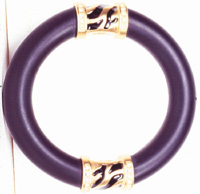|
GOLDSEA |
ASIAMS.NET |
ASIAN AMERICAN WONDER WOMEN
EXECUTIVE SWEET
PAGE 2 OF 3
The older of two children, Jung was born in Toronto, Canada, in 1958. Her Shanghai-born mother and Hong Kong-born father had met at the city's university. Both parents were ambitious. Her mother, an accomplished pianist, was one of Canada's first female chemical engineers, while her father was an esteemed architect. When Andrea turned two, the Jung family moved to Wellesley after her father accepted a teaching post at MIT. Her mother landed another chemical engineering job, but has since exchanged her technical career for that of a concert pianist. Her brother Mark, three years her junior, runs a San Francisco software company.
"My parents kept the best aspects of the Asian culture, and they Americanized the family," Jung says. "My mother was a great example for me. She was a working mother with a good career. And from my father I inherited his even keel, a balance between humor and taking things seriously." Jung's parents now live in Boston where her father is a partner in an architectural firm.
In case their daughter didn't inherit ample ambition, Jung's parents ensured she would develop a strong work ethic. Saturday mornings saw her at Mandarin classes. Weekday afternoons had her practicing the piano, while music recitals consumed weekend evenings.
When Jung entered high school, she had enough drive to satisfy everyone but herself. She delved into class politics, becoming her class secretary and then student body president. She was fluent in Mandarin, conversational in Cantonese and passable in French.
She went immediately to Princeton, where she studied English Literature and graduated magna cum laude in 1979.
Jung planned to work two years in retail before attending law school. She interviewed with a recruiter from Bloomingdales at a college career fair and was hired into the company's management training program. Jung saw the job as a way to attain the thick-skin and real-world savvy a high-powered law career requires. She never counted on the thrill of persuading consumers to buy, buy and then buy some more.
Studying demographics and psychology, Jung and her team of young merchandisers would try to make consumers associate products with basic human drives. Certain fabrics could be linked to memories of childhood intimacy, while a particular dress cut could be connected to the call of nocturnal adventure.
"You have to combine instinct with a good business acumen," Jung says. "You just can't be creative, and you just can't be analytical. To me it was a very interesting career to get into."
A key moment of Jung's early career was meeting the company's first female vice president. Vass was confident, articulate and aggressive. She also balanced a fast-paced career with a quiet family life. In her Jung saw the kind of executive she wanted to be.
Though driven and determined, Jung still retained traces of what she calls her childhood Asian submissiveness. And she realized survival in the dog-eat-dog corporate world meant shedding all vestiges of her retiring ways. By studying Vass she planned to learn the finer points of tactful aggression.
[CONTINUED BELOW]
Vass also showed Jung the promise that a marketing career held for young women. It had more potential, she explained, for women to advance than other fields because only women could grasp the mindset of the female consumers who make most household purchasing decisions.
Jung found that businessmen had limited insight into women's abilities. Most still considered women fragile vessels whose self-confidence could be shattered with a well delivered put-down and whose strength would be depleted after eight hours of high-powered deal making.
Jung realized that men saw themselves as modern-day Genghis Khans. They believed they could shout through 12 hours of fist-pounding negotiations and afterwards sweat through several games of racketball without getting winded. Men refused to recognize their own limitations, while women did all too well. Jung thought businesswomen needn't dwell in this world of delusion, but should support themselves by accepting reality. They should network to discuss their doubts and find ways to overcome it.
In reality, though, businesswomen rarely did this. It was seen as a weakness in a corporate landscape sculpted by male values.
"Women don't support other women as well as they should," she says.
Powerful people typically devote little time to assist their underlings. But Jung realized she could remedy the situation. After befriending her, Jung cajoled Vass into being her guide.
"Some people just wait for someone to take them under their wing," Jung says. "I've always advised that they shouldn't wait. They should find someone's wings to grab onto."
With Vass' guidance, Jung scaled Bloomingdales' management ranks. She moved up to merchandising manager and became Vice President of intimate apparel in the mid 1980s.
PAGE 3
PAGE 1 |
2 |
3
|
|
|
|

<

An avon bracelet. Avon's product lines have been moving upmarket since Jung took charge of U.S. operations.
|
|
“My parents kept the best aspects of the Asian culture, and they Americanized the family.”
|
CONTACT US
|
ADVERTISING INFO
© 1996-2013 Asian Media Group Inc
No part of the contents of this site may be reproduced without prior written permission.
|







